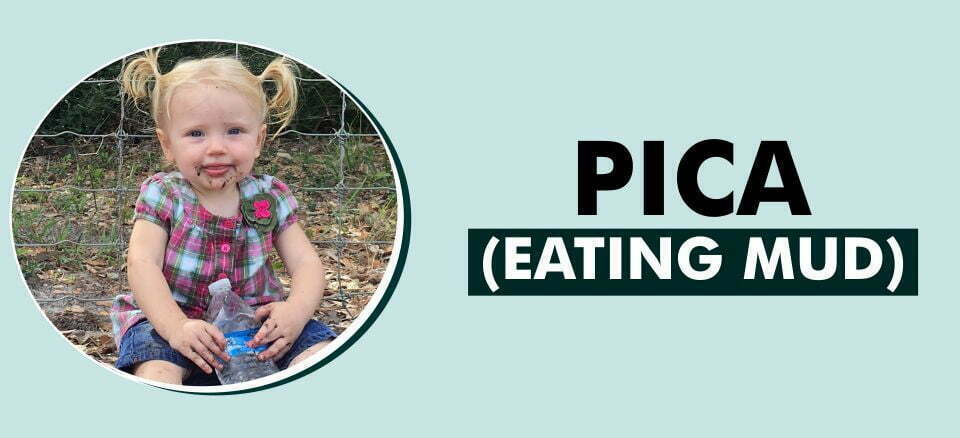


[vc_row][vc_column][vc_column_text]Children are curious by nature. They love to explore the world around them. As your kid grows, they learn to use and explore the world with their senses.
Infants starting from age 6-8 months tend to put everything in their mouth, whether edible or non-edible, just to know it better. It is called mouthing & is considered normal up to the age of two years. The most common example of this behaviour is seen in kids eating dirt or mud.
As a result, many parents struggle with this question: Why kids eat soil? If this habit of mud eating or other such non-edible things persists beyond two years, the baby may be suffering from a disorder called PICA.
IDP defines PICA as an eating disorder in which a baby eats non-edible substances like wood, clay, soap, paint, mud, earth, etc., which are not culturally or developmentally appropriate in kids more than two years old, and this habit persists for more than one month.
You may ask why children eat soil or mud? Well, it doesn’t necessarily mean your child has PICA. However, if it does, the following are some of the causes of this disorder:
Eating non-nutrition / non-edible things can lead to various health problems which your paediatrician can assess:
A lot of parents ask about the medicine for child eating soil. Before you seek outside remedies, it’s best to prevent PICA in kids. You must:
Though most babies grow out of this habit as they reach teenage, you must consult your paediatric doctor immediately if you suspect your baby has PICA. A Paediatrician can tell you the best treatment of child eating soil.
The doctor will assess the baby’s nutrition level (height and weight and its appropriateness for age), iron level, and any lead poisoning, zinc deficiency, or worm infestation features.
The doctor will also assess baby’s development and intellectual level.
Depending on the doctor’s assessment, your baby will be treated.
The doctor may prescribe mineral, iron, and calcium supplementation and deworm.
Your baby may also need behavioural or psychological therapy to overcome PICA and alleviate stress.
Ensure that you communicate effectively with your kid and be positive and encouraging to help him overcome this habit.[/vc_column_text][/vc_column][/vc_row]
September 30, 2024
Recognize the Signs: Understanding Appendicitis Pain Symptoms
September 24, 2024
Unveiling the Truth: I-Pill Side Effects Every Woman Should Know
We use cookies to enhance your experience. By clicking "Accept", you agree to our use of cookies.